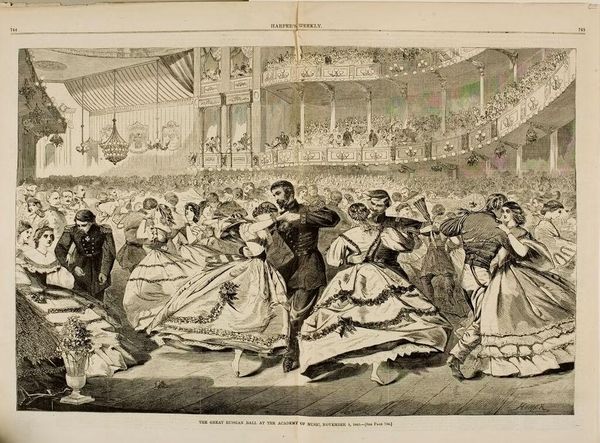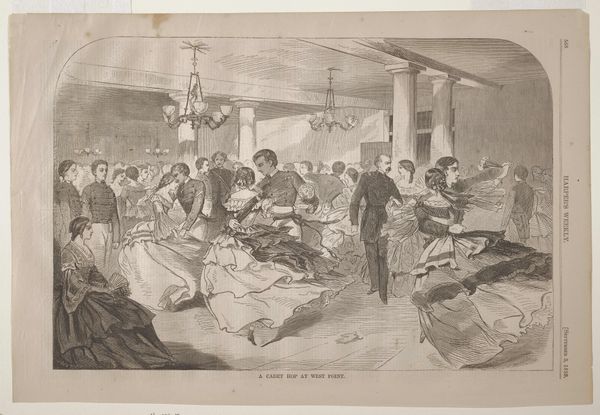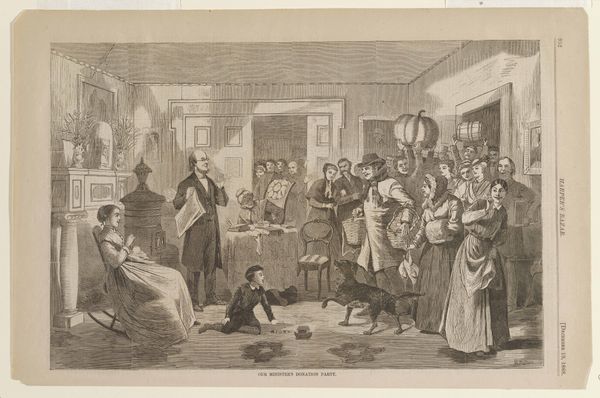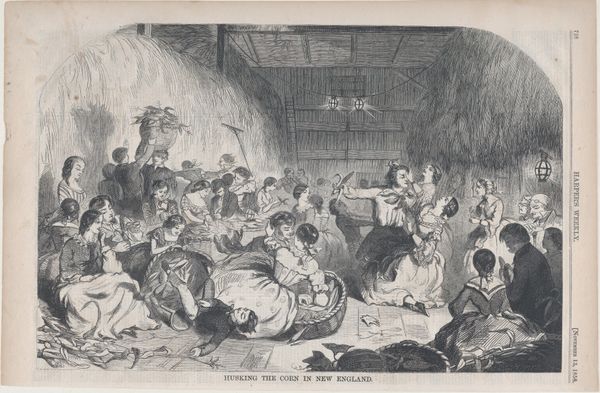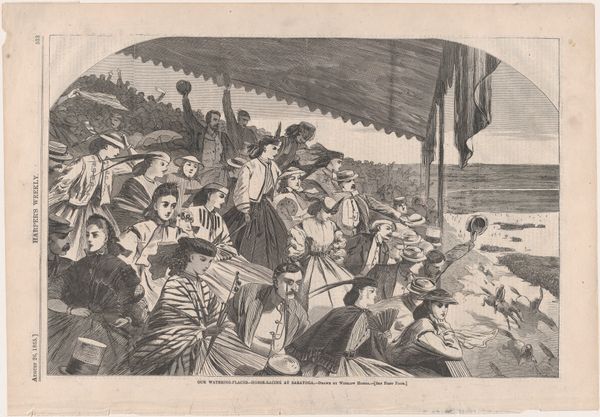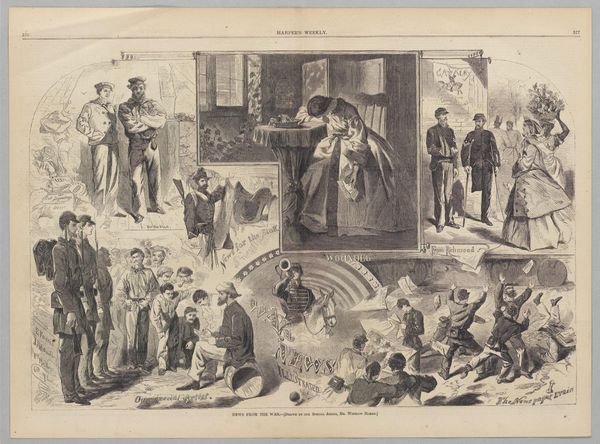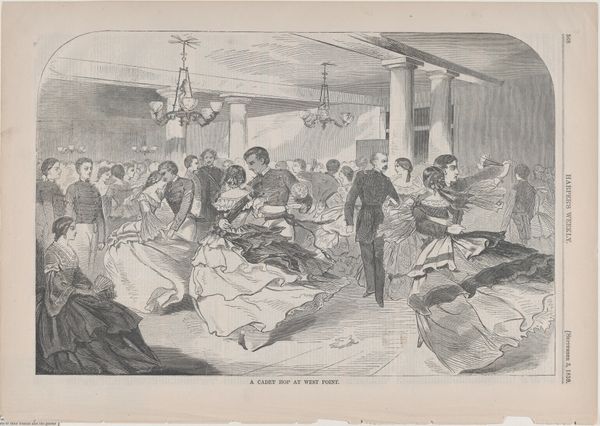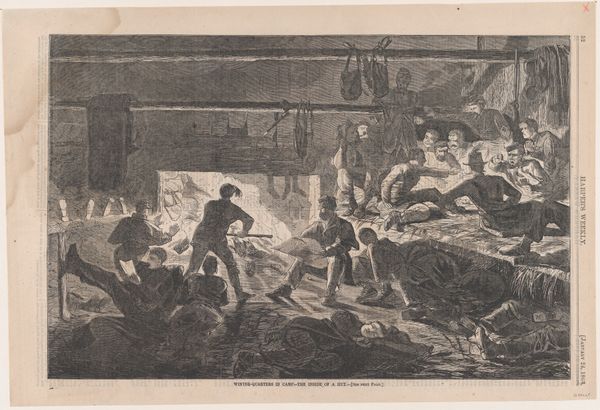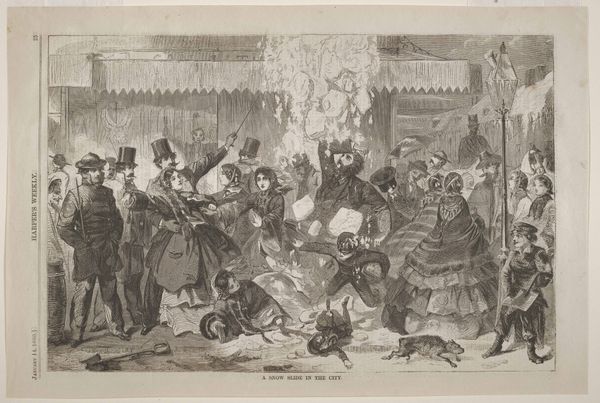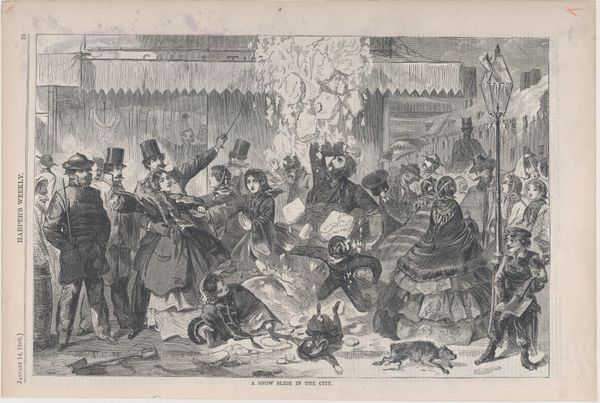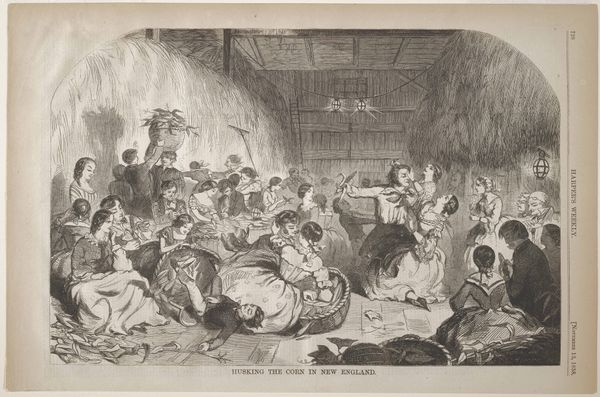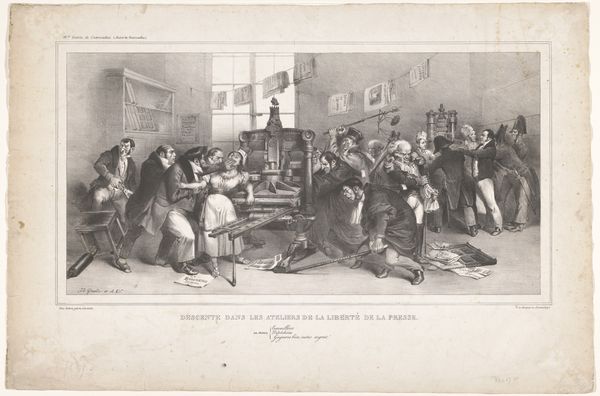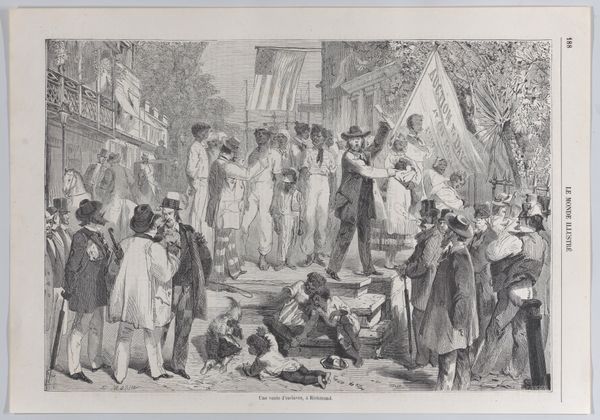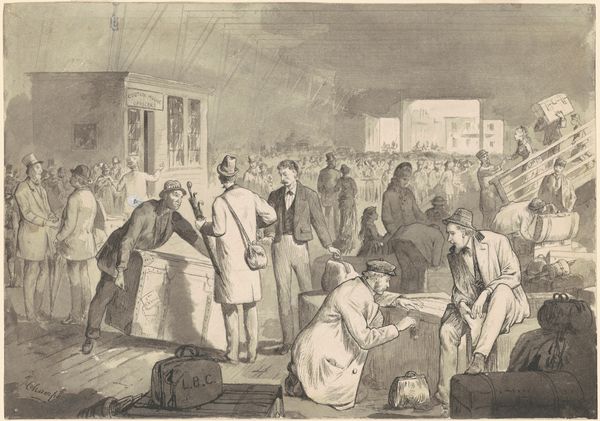
The Great Russian Ball at the Academy of Music, November 5, 1863 Possibly 1863
0:00
0:00
drawing, print, paper, engraving
#
drawing
#
narrative-art
# print
#
paper
#
group-portraits
#
genre-painting
#
academic-art
#
engraving
Dimensions: 334 × 516 mm (image); 406 × 555 mm (sheet)
Copyright: Public Domain
Winslow Homer’s "The Great Russian Ball at the Academy of Music, November 5, 1863" was created on paper, using wood engraving. This was a common form of mass media at the time. The print captures a moment of lavish festivity, but let’s consider what it meant to produce such an image. Wood engraving is an intensive process, requiring a block of wood, specialized tools to carve the design, and the labor of a skilled engraver. Each line had to be carefully cut to create an image that could be reproduced thousands of times over. The very nature of the medium—the need for technical precision and repetition—speaks to the rise of industrial capitalism during the Civil War era. Homer originally worked as a commercial illustrator, so this was his bread and butter. Consider how this print straddles the line between art and commodity, reflecting the complex relationship between creativity, labor, and consumption in the 19th century.
Comments
No comments
Be the first to comment and join the conversation on the ultimate creative platform.
